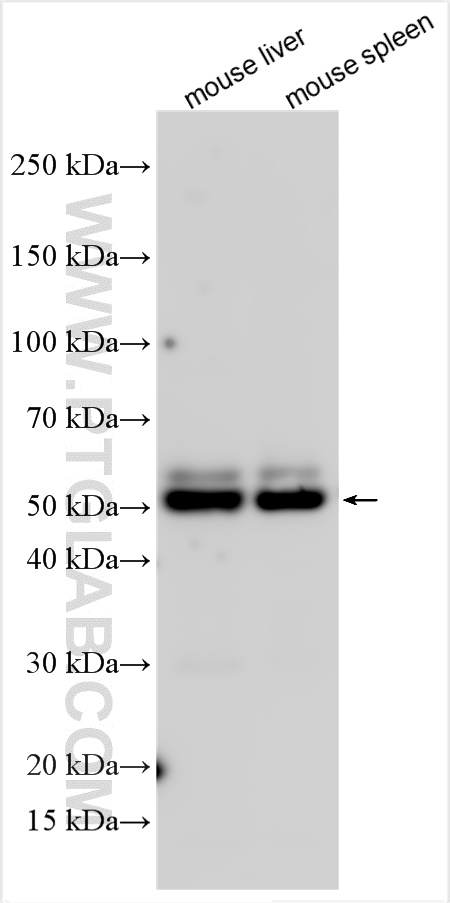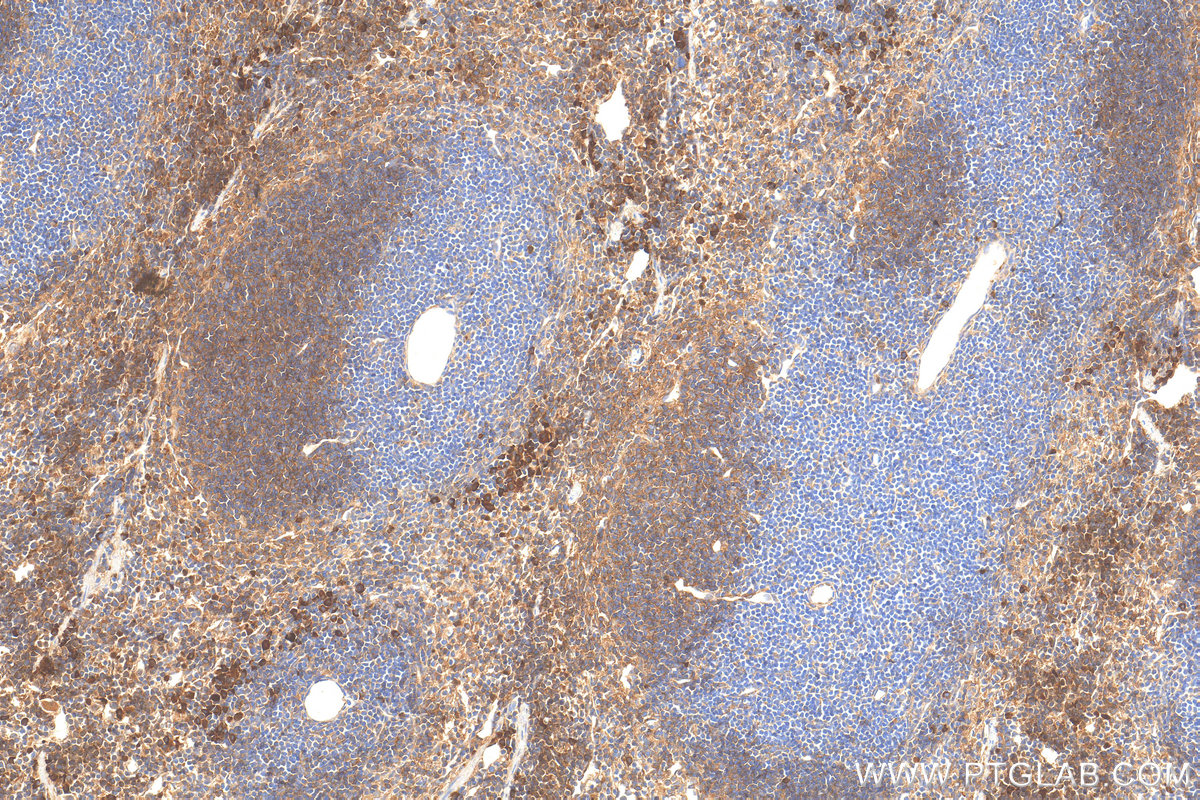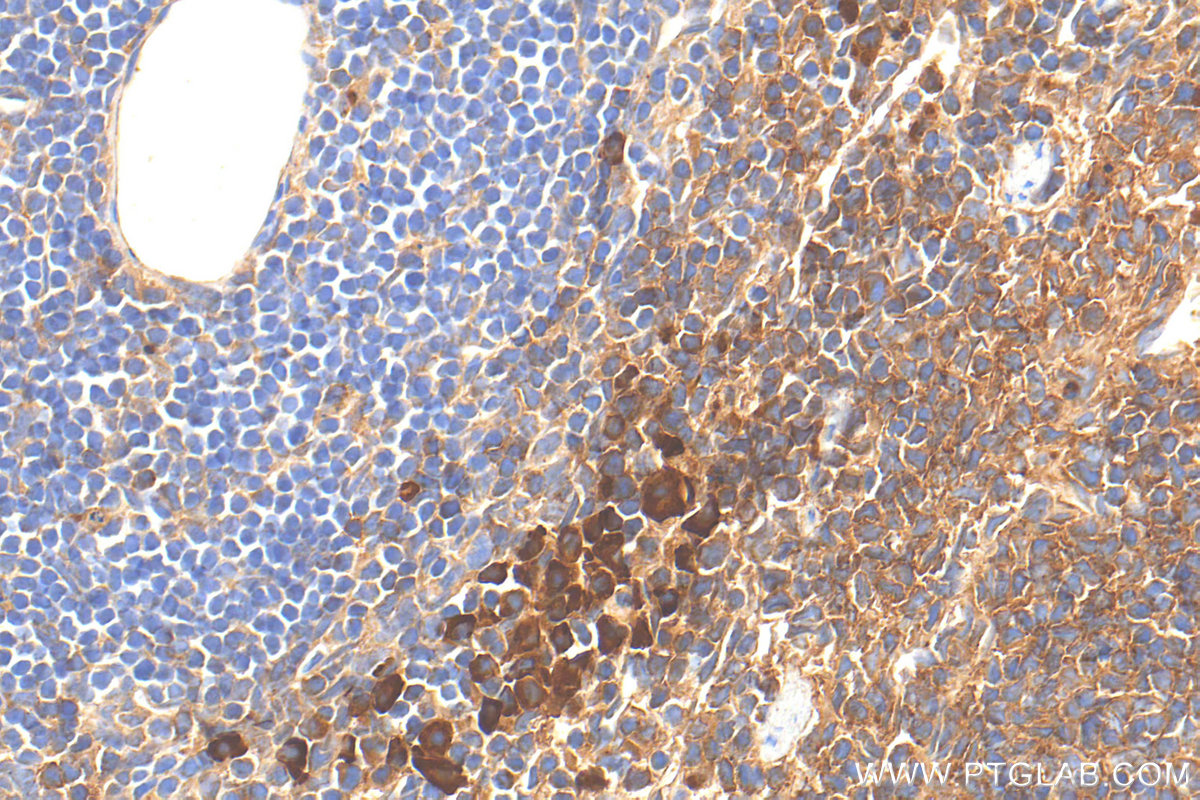验证数据展示
经过测试的应用
| Positive WB detected in | mouse liver tissue, mouse spleen tissue |
| Positive IHC detected in | mouse spleen tissue Note: suggested antigen retrieval with TE buffer pH 9.0; (*) Alternatively, antigen retrieval may be performed with citrate buffer pH 6.0 |
推荐稀释比
| 应用 | 推荐稀释比 |
|---|---|
| Western Blot (WB) | WB : 1:500-1:2000 |
| Immunohistochemistry (IHC) | IHC : 1:50-1:500 |
| It is recommended that this reagent should be titrated in each testing system to obtain optimal results. | |
| Sample-dependent, Check data in validation data gallery. | |
产品信息
32150-1-AP targets CD24 in WB, IHC, ELISA applications and shows reactivity with mouse samples.
| 经测试应用 | WB, IHC, ELISA Application Description |
| 经测试反应性 | mouse |
| 免疫原 |
CatNo: Eg2104 Product name: Recombinant Mouse CD24 protein (rFc Tag)(HPLC verified) Source: mammalian cells-derived, pHZ-KIsec-C-rFc Tag: C-rFc Domain: 27-53 aa of NM_009846.2 Sequence: NQTSVAPFPGNQNISASPNPSNATTRG 种属同源性预测 |
| 宿主/亚型 | Rabbit / IgG |
| 抗体类别 | Polyclonal |
| 产品类型 | Antibody |
| 全称 | CD24a antigen |
| 别名 | Cd24a, CD24a antigen, HSA, Ly 52, nectadrin |
| 计算分子量 | 8 kDa |
| 观测分子量 | 50-55 kDa |
| GenBank蛋白编号 | NM_009846.2 |
| 基因名称 | CD24 |
| Gene ID (NCBI) | 12484 |
| RRID | AB_3670209 |
| 偶联类型 | Unconjugated |
| 形式 | Liquid |
| 纯化方式 | Antigen affinity Purification |
| UNIPROT ID | P24807 |
| 储存缓冲液 | PBS with 0.02% sodium azide and 50% glycerol, pH 7.3. |
| 储存条件 | Store at -20°C. Stable for one year after shipment. Aliquoting is unnecessary for -20oC storage. |
背景介绍
CD24 (known as heat stable antigen) is a small highly glycosylated GPI-linked sialoprotein. It is normally expressed at the surface of most B lymphocytes and differentiating neuroblasts, and it is also up-regulated in a wide variety of cancers. Studies have shown that CD24 functions in the regulation of B-cell apoptosis, leukocyte signal transduction, and leukocyte adhesion. Since it is highly glycosylated, the apparent molecular weight of CD24 could be variable, ranging from 30 kDa to 70 kDa. (Ref: Akihiko Sano, MD., 2009)
实验方案
| Product Specific Protocols | |
|---|---|
| IHC protocol for CD24 antibody 32150-1-AP | Download protocol |
| WB protocol for CD24 antibody 32150-1-AP | Download protocol |
| Standard Protocols | |
|---|---|
| Click here to view our Standard Protocols |




